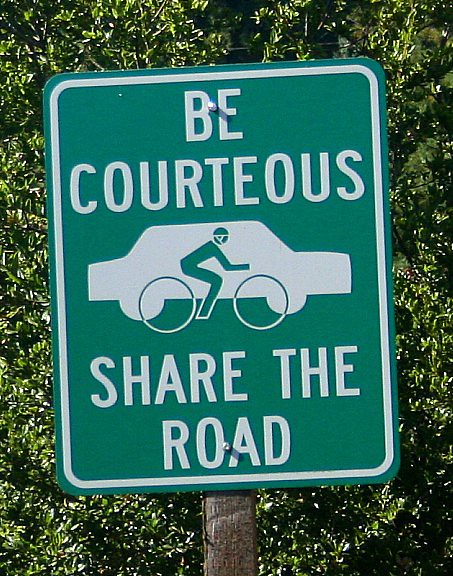 There have been quite a few articles like this one from The Clarion-Ledger appearing across various media outlets lately. I've seen several over the past couple weeks. It seems that even Ted Nugent got in on the action. Of course, it isn't like these public appeals for civility are anything new. I recall seeing an even more impressive flurry of them back in 2009 when Rep. Joe Wilson (R-SC) shouted "You lie" during a speech President Obama was giving to Congress. Little did we know at the time that those days might soon be remembered fondly for their civility compared to the times in which we now live.
There have been quite a few articles like this one from The Clarion-Ledger appearing across various media outlets lately. I've seen several over the past couple weeks. It seems that even Ted Nugent got in on the action. Of course, it isn't like these public appeals for civility are anything new. I recall seeing an even more impressive flurry of them back in 2009 when Rep. Joe Wilson (R-SC) shouted "You lie" during a speech President Obama was giving to Congress. Little did we know at the time that those days might soon be remembered fondly for their civility compared to the times in which we now live.I tend to agree with most of these calls for civility. I can usually appreciate where their authors are coming from (though not so much in Nugent's case). I typically find myself thinking that those who write such articles have a valid point. I too would like to see more civility. I'd like to see people treat one another better. And of course, I'd like to see far more reason and far less tribalism.
But these sentiments are not what this post is about. Instead, I'd like to comment on one of the more common objections I've heard to the calls for civility: that calls for courtesy or civility are primarily a way for those with "privilege" to maintain it. Evidently, only those with privilege can concern themselves with such things. Those without privilege have no such luxury. In essence, the claim is that appeals to civility are vehicles of oppression.
I've never found these claims to be persuasive. Regardless of who you are, what you look like, or what sort of life you've lived, I think you have the same capacity to be concerned with civility that anybody else does. To suggest otherwise often strikes me as excessively demeaning to whichever group one is referring to. That whole "bigotry of low expectations" thing, I suppose. No matter how underprivileged someone might be, I think he or she is perfectly capable of longing to be treated better. The notion that one must be privileged in order to crave civility strikes me as absurd.
I recognize that calls for civility can be little more than thinly veiled code for "shut up" or "don't rock the boat." People in power do sometimes use this tactic to silence others. At the same time, I refuse to dismiss all calls for civility as evidence of such efforts. Again, I think that there can be a genuine desire for improved civility even among those we'd all consider marginalized or oppressed. Refusing to acknowledge this possibility seems like an all-too-common means of justifying one's shabby treatment of others. It is almost as if some of those who don't want to treat others civilly throw around accusations of privilege to shut down the calls for civility.
When I see someone calling for more reason, courtesy, or civility, I tend to assume that he or she is sincere unless I have a good reason not to do so. Yes, I suppose this may just be because I agree that it would be nice to have more reason, courtesy, and civility in the world. It may also be because I don't think any of these things necessarily has to undermine our efforts to address what we perceive as unjust or otherwise in need of change. We can advocate civility even as we stand up to those who seem determined to take our rights away. Treating others civilly does not preclude disagreeing with them or even working to defeat their political agenda. Thus, I do not believe that we must classify others as enemies and treat them poorly in order to effectively oppose their aims.